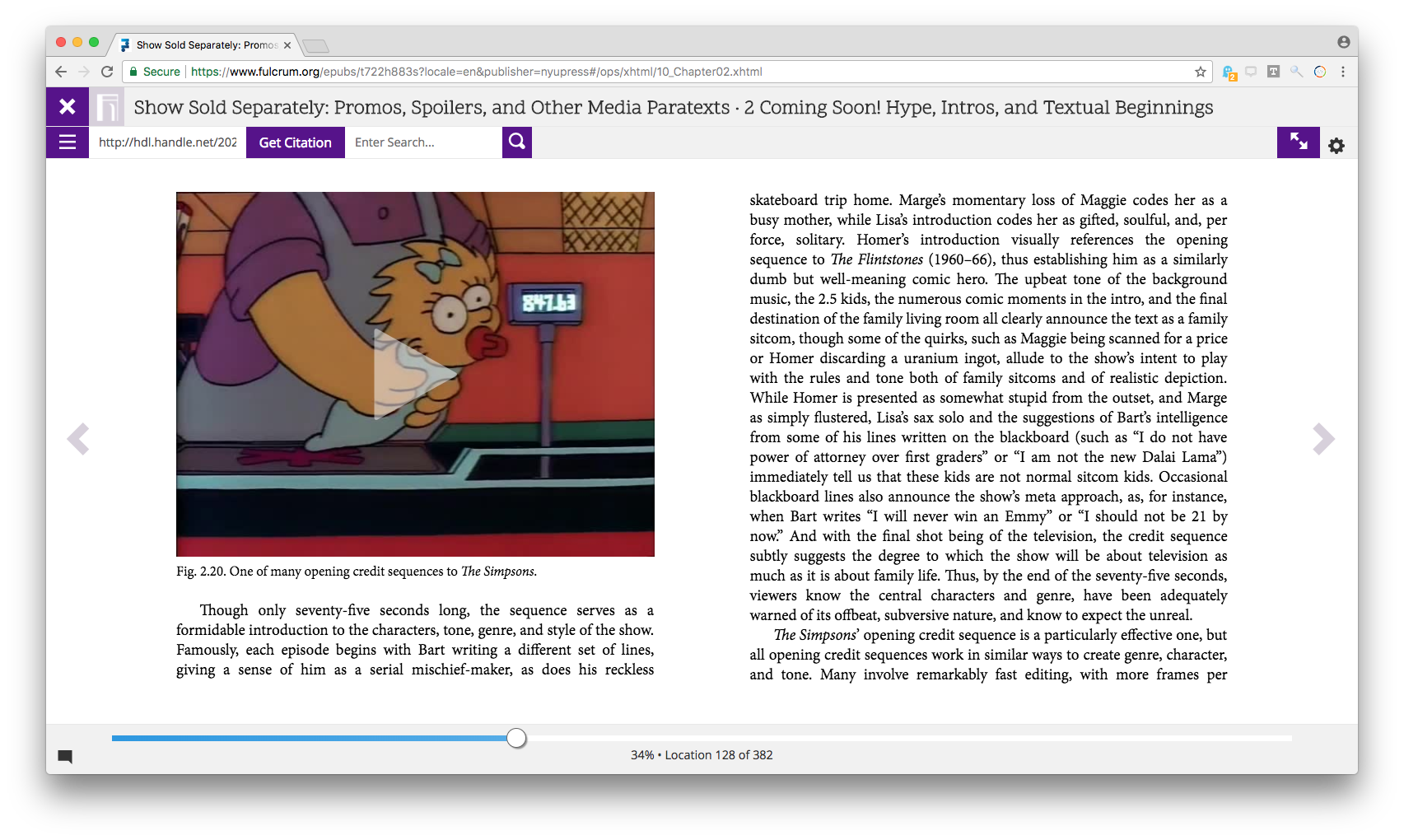Fulcrum Year End Update - 2017 Edition

Melissa Baker-Young
The end of the year is upon us and before we let 2017 slip away into the history books, we wanted to highlight some of the major work done on Fulcrum this year and take a quick peek at what awaits us in 2018.
2017 definitely found the Fulcrum team busy! We launched all of the remaining non-Michigan titles that were part of our “Building a Hosted Platform for Managing Monographic Source Materials” grant, generously funded by the Andrew W. Mellon Foundation. Titles from Indiana University Press and Penn State University Press joined those from Northwestern University Press and the University of Minnesota Press, which launched in 2016, on Fulcrum. Our press colleagues’ efforts in collecting assets and metadata for Fulcrum, as well as providing user requirements and feedback throughout development, was invaluable.
Once we established a stable space for supplemental materials on Fulcrum, we were able to turn our attention to the development of our EPUB reader. In close collaboration with HathiTrust, we built a truly dynamic, accessible, and usable e-reader. We offer easy navigation throughout the EPUB, through next/previous buttons, helpful links into the content from the Table of Contents, as well as a progress indicator, which includes a location number and percentage, giving the reader a sense of the size of the book and their location within it. Readers can search the EPUB, they can select their font size and display method (page-by-page or scroll), and obtain a citation for the work using MLA, APA, and Chicago styles. And we continue to focus on accessibility, performing accessibility checks and tests and making numerous adjustments to ensure WCAG 2.0 AA compliance.
We’re happy to announce that our EPUB reader launched on December 7th! New York University Press was instrumental in helping us with this task, as they graciously allowed us to use the EPUB file for their title Show Sold Separately by Jonathan Gray, as our inaugural e-reader title.
This year also found the Fulcrum team working hard to make a seamless transition from the Samvera (formerly Hydra) Curation Concerns gem to the new Hyrax application. The Fulcrum team took on a more active role in the Samvera community by being one of the first to thoroughly test and migrate to the initial and subsequent release of Hyrax. This transition puts Fulcrum on a common footing with the most active Samvera development, making it easier both to benefit from and contribute back to the latest and greatest work happening at other Samvera applications.
Looking ahead to 2018, the Fulcrum team will be busier than ever! The first part of the year will see us working hard to bring the University of Michigan Press title A Mid-Republican House from Gabii to Fulcrum. Currently available on our DLXS platform, A Mid-Republican House from Gabii will migrate to Fulcrum, demonstrating Fulcrum’s ability to present a born-digital publication that is equal parts narrative, 3D model, and database, in an intuitive, user-friendly way. Expect to hear much more about this over the next few months.
Fulcrum is committed to the Samvera open source community and we continue to work with the community to improve and extend its offerings for digital publishing. In the early months of 2018, Fulcrum developers will contribute to a community-organized development effort to improve the analytics and reporting capabilities in Hyrax, keeping a particular eye on uses that will be useful to publishers and authors.
We’re also excited about working with Michigan State University Usability/Accessibility Research and Consulting (MSU-UARC) at the beginning of the year, performing functional accessibility testing on our platform and e-reader.
Last, but not least, the next year will also see us perform a major migration of the American Council of Learned Societies (ACLS) Humanities E-Book collection to Fulcrum. A first rollout of just over a dozen titles will happen in the spring, with the remaining several thousand titles launching in August. We’ll be using the ACLS migration to Fulcrum to continue improving the e-reader user experience – adding annotation tools, download options, and other features based on user testing and feedback.
The above does not really capture the full extent of the effort that has gone into Fulcrum this year or that will go into the next. The Fulcrum team is constantly moving and improving, and, admittedly, it’s been hard to stop from time to time and reflect and report out to you. For the new year, we resolve to do that more often.